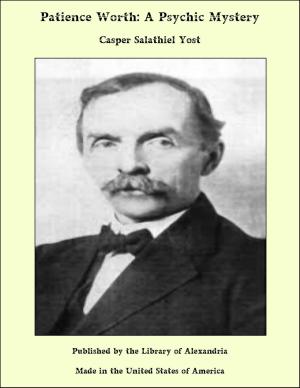| Author: | Lev Nikolayevich Tolstoy | ISBN: | 9781465597632 |
| Publisher: | Library of Alexandria | Publication: | March 8, 2015 |
| Imprint: | Language: | English |
| Author: | Lev Nikolayevich Tolstoy |
| ISBN: | 9781465597632 |
| Publisher: | Library of Alexandria |
| Publication: | March 8, 2015 |
| Imprint: | |
| Language: | English |
The winter had dragged by, sad and sombre, in our old country-house of Pokrovski. The weather had been cold, and so windy that the snow was often piled high above our windows; the panes were almost always cloudy with a coating of ice; and throughout the whole season we were shut in, rarely finding it possible to go out of the house. It was very seldom that any one came to see us, and our few visitors brought neither joy nor cheerfulness to our house. They all had mournful faces, spoke low, as if they were afraid of waking some one, were careful not to laugh, sighed and often shed tears when they looked at me, and above all at the sight of my poor Sonia in her little black frock. Everything in the house still savored of death; the affliction, the horror of the last agony yet reigned in the air. Mamma’s chamber was shut up, and I felt a painful dread and yet an irresistible longing to peep furtively into the chill, desolate place as I passed it every night on my way to bed. I was at this time seventeen years old, and the very year of her death Mamma had intended to remove to the city, in order to introduce me into society. The loss of my mother had been a great sorrow to me; but I must confess that to this grief had been added another, that of seeing myself—young, beautiful as I heard from every one that I was,—condemned to vegetate during a second winter in the country, in a barren solitude. Even before the end of this winter, the feeling of regret, of isolation, and, to speak plainly, of ennui, had so gained upon me that I scarcely ever left my own room, never opened my piano, and never even took a book in my hand. If Macha urged me to occupy myself with something I would reply: “I do not wish to, I cannot,” and far down in my soul a voice kept asking: “What is the use? Why ‘do something’—no matter what—when the best of my life is wearing away so in pure loss? Why?” And to this “Why?” I had no answer except tears.
The winter had dragged by, sad and sombre, in our old country-house of Pokrovski. The weather had been cold, and so windy that the snow was often piled high above our windows; the panes were almost always cloudy with a coating of ice; and throughout the whole season we were shut in, rarely finding it possible to go out of the house. It was very seldom that any one came to see us, and our few visitors brought neither joy nor cheerfulness to our house. They all had mournful faces, spoke low, as if they were afraid of waking some one, were careful not to laugh, sighed and often shed tears when they looked at me, and above all at the sight of my poor Sonia in her little black frock. Everything in the house still savored of death; the affliction, the horror of the last agony yet reigned in the air. Mamma’s chamber was shut up, and I felt a painful dread and yet an irresistible longing to peep furtively into the chill, desolate place as I passed it every night on my way to bed. I was at this time seventeen years old, and the very year of her death Mamma had intended to remove to the city, in order to introduce me into society. The loss of my mother had been a great sorrow to me; but I must confess that to this grief had been added another, that of seeing myself—young, beautiful as I heard from every one that I was,—condemned to vegetate during a second winter in the country, in a barren solitude. Even before the end of this winter, the feeling of regret, of isolation, and, to speak plainly, of ennui, had so gained upon me that I scarcely ever left my own room, never opened my piano, and never even took a book in my hand. If Macha urged me to occupy myself with something I would reply: “I do not wish to, I cannot,” and far down in my soul a voice kept asking: “What is the use? Why ‘do something’—no matter what—when the best of my life is wearing away so in pure loss? Why?” And to this “Why?” I had no answer except tears.















